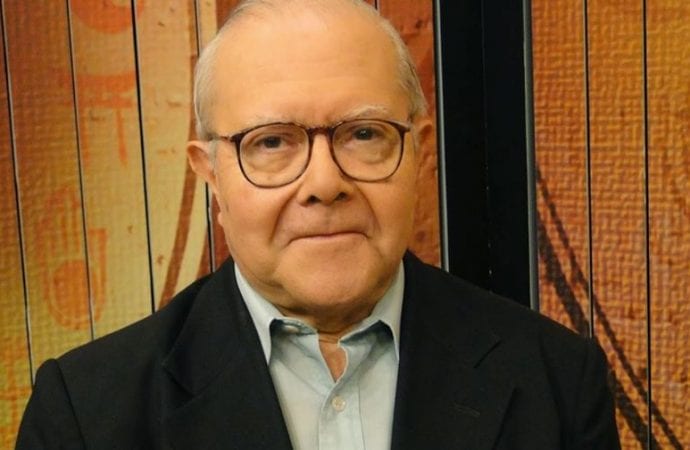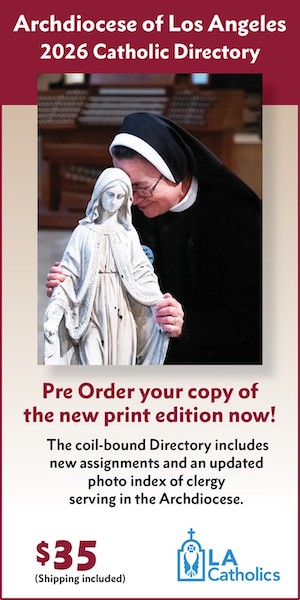ROME - Whenever Pope Francis welcomes a head of state, he hands them several gifts that usually range from medals to texts. No matter who the person is, however, there’s one thing that’s always in the mix: his first major document, written during the first months of his pontificate, which for many is the Magna Carta of this papacy.
Evangelii Gaudium, or “The Joy of the Gospel,” was published in 2013 and it develops Francis’s key notions, from criticizing the “invisible hand” of the market to calling for an “ecclesial renewal.”
Few words, however, are mentioned more than pueblo. It appears 164 times in the Spanish edition, making it the most used noun in the document.
Often translated into “the people of God,” the word pueblo in Spanish has a different meaning, one for which there is no direct equivalent in English. This contrast, according to Jesuit Father Juan Carlos Scannone, is at the heart of the “disconnect” between Francis and some English-speaking Catholics, who sometimes interpret the word to mean “populist.”
The closest term in English would be “the peoples,” but even this is inaccurate. The Spanish version of the word, as the priest explained, refers both to nations - the peoples of Germany, United States, Argentina, for instance - but also to the poor, those who live on the margins, on the outskirts, the populous sectors as opposed to a country’s elites.
Born in Buenos Aires to Italian parents and educated in Vienna and Germany, Scannone, who died Wednesday at the age of 88, spoke with Crux last July, in an interview that was supposed to serve as a set-up for a papal trip to Argentina. At the time such an outing was considered a given, but since then it’s once again been postponed indefinitely.
Arguably, few theologians influenced Francis as much as Scannone.
Relatively short in stature, Scannone was a man of deep thought who would often get carried away while speaking, leaving some of his ideas unfinished as he began to voice new ones. Something that often came up in conversation was the fact that Francis was his student, and that the theological movement he helped create is often referenced by the first pope from the global south.
An important portion of the interview was dedicated to unraveling the meaning of the “teologia del pueblo,” something he had long struggled with when it comes to English-speaking audiences. Scannone first noticed the challenge in translating it in 1975, when, in a two-week long international theology summit held in the Vatican, he talked about this Argentine theological current. Much to his dismay, by the time it wrapped up he realized that the participants from Asia, Africa and North America who had no knowledge of Spanish, Italian or French, hadn’t understood the core of his thought.
The late priest was perhaps the most internationally recognized Argentine theologian, and a main point of reference for Argentina’s “theology of the people,” one of the four currents of Latin America’s liberation theology which, as he was always quick to clarify, made a “preferential option for the poor,” but “had nothing to do with the Marxist [current of liberation theology].”
Francis has long been one of the most outgoing interpreters of this theological movement, often referring to God’s people and the faithful people of God, key concepts for Scannone and company.
“The first thing to understand is that the theology of the people is neither liberal nor Marxist,” Scannone said, as he has been saying since 1982. This distinction was also made by the then secretary general of the conference of Latin American bishops (CELAM), Antonio Quarracino, who would later become Archbishop of Buenos Aires and the predecessor to then Jorge Mario Bergoglio, today Pope Francis.
The minds behind Argentina’s liberation theology, including Fathers Lucio Gera, Rafael Tello, Fernando Boasso and Justino O’Farrell, he said, focused their work on creating categories of understanding that were neither liberal nor Marxist to try to explain Latin American and Argentine history. From this perspective came the idea of understanding history from a cultural perspective and from that of the “People of God,” a notion that was used by the Second Vatican Council’s dogmatic constitution Lumen gentium.
“The theology of the people thinks of the Church in dialogue with the people,” Scannone said. “As Father Carlos Galli says, the novelty of Argentina’s theology to the council’s categorizing of the ‘People of God’ is not only the importance of the laity. It’s not putting the faithful people of God ahead of the hierarchy, but building a relationship between the people of God and the peoples of earth.”
In Latin America, the priest said, “those who preserve the culture, the values of the nation’s people, are the poor, the needy. Since to thrive they need to come together as a community, they retain the notion of ‘people’ to achieve the common good. Therefore, their wealth lies in the historical memory and the project of everyone thriving.”
For most of the continent’s middle and upper class, their interest lies in what happens up north and in Europe. In Argentina, more than in other countries, Scannone argued, this is tied to the millions who arrived in the country between the 1850s and the 1950s.
“For a long time, the ‘Argentine’ was reduced to the person who came from Buenos Aires,” he said. “And as it was often said, we were perceived as Italians who spoke Spanish, dressed like the English and thought like the French.”
Culture, he argued, plays a fundamental role in this theology, because it is the starting point from which people are thought of: “The evangelization of culture and the inculturation of the Gospel are both key in the theology of the people, as both a theological and pastoral issue, and this is something Pope Francis is very concerned about.”
Hence the pope’s many calls for the Church to have a “local” face - for instance, a Church with an “Amazonian face,” as he would often say during the recently concluded synod of bishops on the Amazon region; or his call during his Nov. 20-23 visit to Thailand for a Church that talks about the faith “in dialect.”
A church that has a local face, he said, “involves much more than making translations. It’s about letting the Gospel be stripped of fine but foreign garb; to let it ‘sing’ with the native music of this land and inspire the hearts of our brothers and sisters with the same beauty that set our own hearts on fire.”
During his interview with Crux, Scannone said that Francis’s understanding of the importance of the local culture has long been a part of his ministry. Back in 1985, when he was the rector of the Colegio Maximo, a Jesuit college on the outskirts of Buenos Aires, then-Father Bergoglio organized a meeting with bishops and theologians from Latin America, Asia and Africa.
“It was the first time that we held a workshop in Latin America on the inculturation of the Gospel,” he said, adding that for the Theology of the People, “religion is substantial within the culture. This explains the importance of popular religiosity and piety in Argentina and Latin America.”
Scannone also spoke about the role “pastoral conversion” has for this theological movement, another key element of the current pontificate.
“It’s the idea of a church that goes out, that doesn’t wait for people to come to church, but that instead encounters people where they are,” he said. “And I’m not talking only about the priest, but lay people too.”
Regarding criticism the pope receives, Scannone said that it comes from “minority groups” that lack an “historic mentality.” These groups, he argued, follow a Catholicism that doesn’t come from Jesus and not even from the Middle Ages, but from the 19th and early 20th centuries. According to this current, he said, “this is Catholicism, and if you don’t think like them, you are changing tradition.”
“They have no thoughts nor experience of what history is,” the priest said. “As John Paul II used to say, we need a ‘creative fidelity,’ this means to adapt to the times, living the reality that is changing, without setting aside what is essential.”
As for “contradictions” between Francis and his immediate predecessor, Scannone argued that there are “none.” However, “one is German, one is Argentinian. One a professor, who speaks in a calm voice and who is very shy. The other one is amidst the people.”

